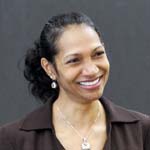Bolstering its emphasis on interdisciplinary efforts, Washington University in St. Louis will offer five new courses rooted in a partnership between two or more schools.
In tandem with the growing trend of cross-collaboration in research and the professional arena, the Office of the Provost created its Cross-School Interdisciplinary Teaching Grants Program in 2010. The first of those grants was announced last month.
This cutting-edge approach to undergraduate and graduate education ensures that WUSTL students will “work in the most exciting areas,” according to Edward S. Macias, PhD, provost, executive vice chancellor for academic affairs and the Barbara and David Thomas Distinguished Professor in Arts & Sciences, who credits the Provost’s Faculty Fellows, especially Marion G. Crain, JD, the Wiley B. Rutledge Professor of Law, for the program.
“Many of today’s important issues cross over areas that several schools and their different faculty can and should address as a team,” Macias says.
Schools team up for multifaceted approach
Awarding up to $50,000 each, the teaching grants support promising interdisciplinary courses in their early stages. The five courses, which will be offered in spring or fall 2012, involve a diversity of school pairings:
Personalized Nanotechnology Laboratory (Dong Qin, PhD, research associate professor of energy, environmental and chemical engineering in the School of Engineering & Applied Science, and Stuart Solin, PhD, the Charles M. Hohenberg Professor of Physics in Arts & Sciences): This undergraduate course will further the goal of establishing a minor in nanotechnology by launching a dynamic teaching lab focused on hands-on activities. Nanotechnology — or the engineering, manipulation and creating of materials on the nanoscale (at the atomic and molecular level) — is an emerging science with tremendous implications for computer storage, drug delivery and durable building materials.
Adolescent Health (Katie Plax, MD, associate professor of pediatrics in the School of Medicine, and Juan Pena, PhD, assistant professor of social work in the Brown School): With an emphasis on violence prevention, this graduate course will offer an understanding of adolescent development, health, mental health, well-being, family systems, and the causes of injury and death in this population. Students will examine the manners in which problems such as suicide, substance abuse and risky sexual behaviors are addressed through deterrence programs and interventions.
Economic Realities of the American Dream (Steven Fazzari, PhD, professor of economics in Arts & Sciences and associate director of WUSTL’s Murray Weidenbaum Center on the Economy, Government, and Public Policy, and Mark R. Rank, PhD, the Herbert S. Hadley Professor of Social Welfare in the Brown School): Hard economic realities and their relation to the often nebulous American Dream will be examined in this course for Arts & Sciences undergraduates and those in the Master of Social Work program. By combining economics, sociology and social work, the pair of professors intends to explore three topics regarding the American Dream: its definitions, roadblocks to achieving it, and its future.
Interrogating Health, Race, and Inequalities (Shanti A. Parikh, PhD, associate professor of anthropology and of African and African-American studies, both in Arts & Sciences, and Vetta Sanders-Thompson, PhD, associate professor of social work in the Brown School): This upper-level undergraduate/graduate course will explore the global intersection of race/ethnicity, inequalities and health. Of particular focus will be people of African origin in Africa or now living in the United States, Europe, the Caribbean and other locations, illustrating the underlying social reasons for their medical vulnerability and health-related behaviors.
Interdisciplinary Perspectives in Geriatric Care (Brian Carpenter, PhD, associate professor of psychology in Arts & Sciences; Nancy Morrow-Howell, PhD, the Ralph & Muriel Pumphrey Professor of Social Work in the Brown School; and Susan Stark, PhD, assistant professor of occupational therapy in the School of Medicine): The only grant involving three schools will institute a graduate course to equip future geriatric care professionals to serve the physical, psychological and social needs of patients. Those seeking clinical or research careers in geriatrics will learn how interdisciplinary teams work together to address the multifaceted needs of older adults.

Carpenter
Collaborative research already is commonplace among schools, according to Carpenter. The grants are a “logical extension” of that research and transmit a strong signal about the university’s commitment to interdisciplinary education.
“This mechanism sends a message to the faculty about the value the administration places on interdisciplinary teaching and research,” Carpenter says. “This is just the kind of initiative that’s going to help spark conversations across disciplines that people have been trying to have.”
Learning will match workplace culture to address critical issues
The bottom-line value for interdisciplinary courses is simple: Collaboration is the way today’s interconnected world works.
“That’s the way problems are solved today, and that method will continue to be critically important,” Macias says.

Take global warming, for example, Parikh says. The environment is an issue addressed not only by environmental scientists, but also by biologists, anthropologists, social workers, public health specialists and urban development experts. Or the HIV epidemic, which must be approached not only as a medical and biological issue but also as “a phenomena that has emerged out of and flourishes in particular historical, social and political conditions.”
“The reality is that many of our students will enter professions in which they will tackle issues that necessitate that they collaborate and work closely with people from different disciplinary backgrounds,” Parikh says. “The contemporary world is complex. This complexity requires a true dedication to combining analytic tools and methods from multiple disciplines.”
Commending the Office of the Provost for its foresight in creating the Cross-School Interdisciplinary Teaching Grants Program, Parikh says, “The grant shows that the university recognizes the importance of developing collaborations between schools that have pretty much operated as independent units, in terms of economic resources and faculty.
“The program is a testament to the fact that Washington University in St. Louis is on the right track.”